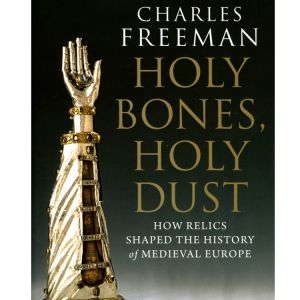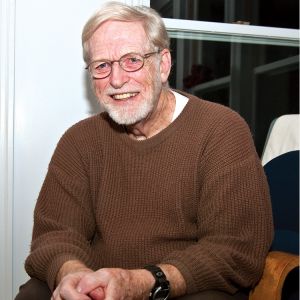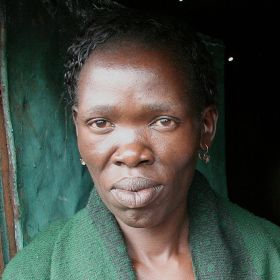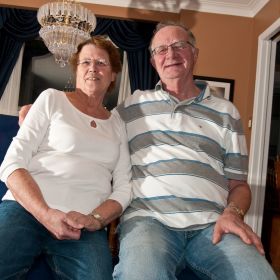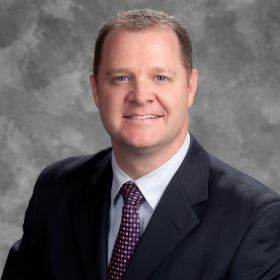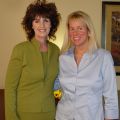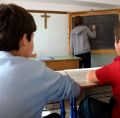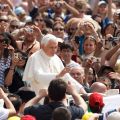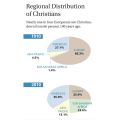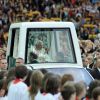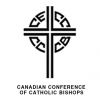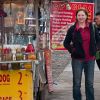Charles Freeman offers a history of medieval relic worship that is both intriguing and engaging — but not, in the end, sympathetic to its subject.
Freeman ambitiously tackles the long Middle Ages — from the start of relic worship among early Christians to the Renaissance and Reformation, when the cult of saints and the reality of miracles began to be questioned. There are many relics in Holy Bones, Holy Dust, but Freeman finds few saints as he generally disparages the Medieval men and women who wrote about, built around and venerated relics.
The author deserves praise for trying to bring together into one story, spanning more than 1,500 years, the complex facets of relic worship from across Europe. Scholars specializing in medieval religion tend, instead, to focus on one area, period or cult.
PICKERING, ONT. - Believers in every religion and through every century of human history have done something they can’t quite describe, justify or do without. They pray.
They may meditate, contemplate, recite, babble or immerse themselves in silence. They may seek solitude or seek company to pray with others. They may follow the rules of a liturgy, improvise or seek a simple, direct encounter with God.
Prayer can be rote execution of routine, woven into the fabric of daily life. Or it can be a unique, creative leap into transcendence. Prayers may be led by a spiritual master, immersed in custom and culture or reach for an unconstrained, individual expression of the spiritual.
Spanish priest says exorcism is God's 'gift to help us believe'
By Lilla Ross, Catholic News ServiceJACKSONVILLE, Fla. - If everything you know about exorcism you learned by watching the movie, "The Exorcist," Father Jose Antonio Fortea wants to exorcise those notions from your head.
To learn about exorcism, Father Fortea said the best textbook is the Bible, especially the Gospels, because after all, Jesus was an exorcist.
Father Fortea, a priest of the Diocese of Alcala de Henares in Spain, is an exorcist. He is the author of several books including "Interview With an Exorcist." Currently based in Rome studying for his doctorate in theology, he was in Florida recently to give talks about exorcism and pastoral care.
Under the radar, African women struggle more than others in food crisis
By Chris Herlinger, Catholic News ServiceNAIROBI, Kenya - The year 2011 was not good for women such as Joan Ochieng. Just about everything was a struggle.
"We were not treated fairly," the Nairobi resident and single mother said of life in 2011, noting the many pressures, including spiraling food prices that caused her and her family of four children and one grandchild to often go to bed hungry.
When things like rice doubled in price in six months, a bowl of porridge was often the only salve in a day in which eating three meals was almost unheard of. Even eating two meals was often a rarity.
Toronto needs more Catholic foster parents like Nellie and Bernie
By Michael Swan, The Catholic RegisterTORONTO - The long-standing shortage of Catholic foster parents in Toronto isn’t getting any better. The Catholic Children’s Aid Society of Toronto has 297 foster care spots available on its own roster. This year it has had to rely on 412 out-of-town spots it purchases from private contractors.
Out-of-town care costs a lot more and it removes kids from their school, their circle of friends and family — everything that can help maintain their sense of belonging. Trouble is, there aren’t a lot of couples like Nellie and Bernie Desroches left in the city. And it is likely there will be fewer in the future.
TORONTO - Terence Sheridan, the newly appointed president of Toronto’s St. Michael’s College School, may be the first layperson to lead the school, but he’s no stranger to the Basilian tradition of the community.
An alumnus of the Toronto all-boys private school, Sheridan has spent the last 15 years as a teacher, administrator and coach at St. Michael’s. And in July 2012, he will succeed Fr. Joseph Redican, C.S.B., as president. During his two-year term, Sheridan will also continue to serve as principal of the school, a role he has held since January.
Suzanne Fowler wants people to fill the hole in their hearts with God, not with food.
That’s the premise of Fowler’s Light Weigh program for weight loss, which she created to solve her own struggles with eating.
“People are not going to food because they’re physically hungry when they’re overeating,” Fowler told The Catholic Register. “They’re going to food because of a spiritual hunger. It’s emotional. It’s taking place in the heart.”
Catholic school affordability: Progress made but still a long way to go
By Carol Zimmermann, Catholic News ServiceWASHINGTON - When educational leaders look at ways to make Catholic schools more affordable, they are happy about some of the positive steps that have been made but fully aware that there is still a lot to do.
During a recent conference at The Catholic University of America, a group of panelists focused particularly on the status of tuition tax credits and how they have enabled students who would normally not be able to afford Catholic schools to attend them.
Currently, there are 11 school voucher programs in the United States and nine scholarship tax-credit programs. Some states have more than one program.
VATICAN CITY - The Prefecture of the Papal Household, the office responsible for handing out free tickets to papal events, estimated more than 2.5 million people saw Pope Benedict XVI at the Vatican in 2011.
The prefecture -- headed by U.S. Archbishop James M. Harvey -- estimated 500,000 people attended a liturgy celebrated by Pope Benedict in the month of May.
Pope Benedict beatified Pope John Paul II May 1. While there may have been only 500,000 people with tickets in St. Peter's Square and on Vatican territory, Italian police had said more than 1 million people were gathered in and around the Vatican and in front of large video screens in several parts of Rome for the Mass.
WASHINGTON - According to a new study, there are currently 2.18 billion Christians in more than 200 countries around the world, representing nearly a third of the estimated 6.9 billion 2010 global population.
The study, conducted by the Pew Research Center's Forum on Religion & Public Life, found Christians to be so geographically widespread that no single continent or region can indisputably claim to be the center of global Christianity.
The Pew study, "Global Christianity: A Report on the Size and Distribution of the World's Christian Population," cites that 100 years ago, two-thirds of the world's Christians lived in Europe but today only about a quarter of all Christians live there. More than one-third of Christians reside in the Americas; about a quarter live in sub-Saharan Africa and 13 percent live in Asia and the Pacific.
More...
Italian car-parts maker hosts eco-friendly popemobile design contest
By Carol Glatz, Catholic News ServiceVATICAN CITY - A select group of young international designers will be submitting innovative mock-ups of what an eco-friendly popemobile should look like.
For the first time, the annual Autostyle Design Competition will have a special category for a popemobile, according to L'Osservatore Romano, the Vatican newspaper. The vehicle design must meet standards for low-emissions, as well as the Vatican's safety and security standards, it said.
Out a pool of about 200 candidates, a commission will choose 12 student finalists who will then have seven to eight months to create a new popemobile design, said Sara Ferraccioli, marketing and communications officer for Berman, the Italian car-parts manufacturer sponsoring the competition.
The latest edition of The Catholic Register looks back on the year that was with a special centre-spread. You can view a high-res PDF of this specially designed collage by clicking here or on the preview image below.
And don't forget, every front cover of the paper from 2011 is now archived on facebook. You can view a slideshow of all these covers, irregardless of whether you have an account or not, by clicking here.
The following is the 2011 Christmas message from Archbishop Richard Smith, president of the Canadian Conference of Catholic Bishops.
Stars give us a sense of direction and brighten the night. In the Book of Genesis (22:17), they are also a sign of God’s blessing. They herald God’s promise to Abraham that his and Sarah’s descendants will be countless. In the Book of Numbers (24:17a), a star is again a sign and promise of what is to come: “I see him, but not now; I behold him, but not near — a star shall come out of Jacob, and a sceptre shall rise out of Israel.”
TORONTO - Marianne Moroney wants justice on the streets of Toronto — justice that can deliver a simple, cheap, satisfying meal. As executive director of the Toronto Street Food Vendors’ Association, Moroney has been fighting city hall for the rights of Toronto’s hot dog stands.
“City councillors have set out purposely to strangle this industry,” Moroney told The Catholic Register.
Moroney is a tenacious and tireless advocate for the mostly poor, mostly immigrant hot dog sellers of the city. It’s an endless and thankless task, but she derives her inspiration from a deep instinct for communion and her attachment to the Eucharist.

